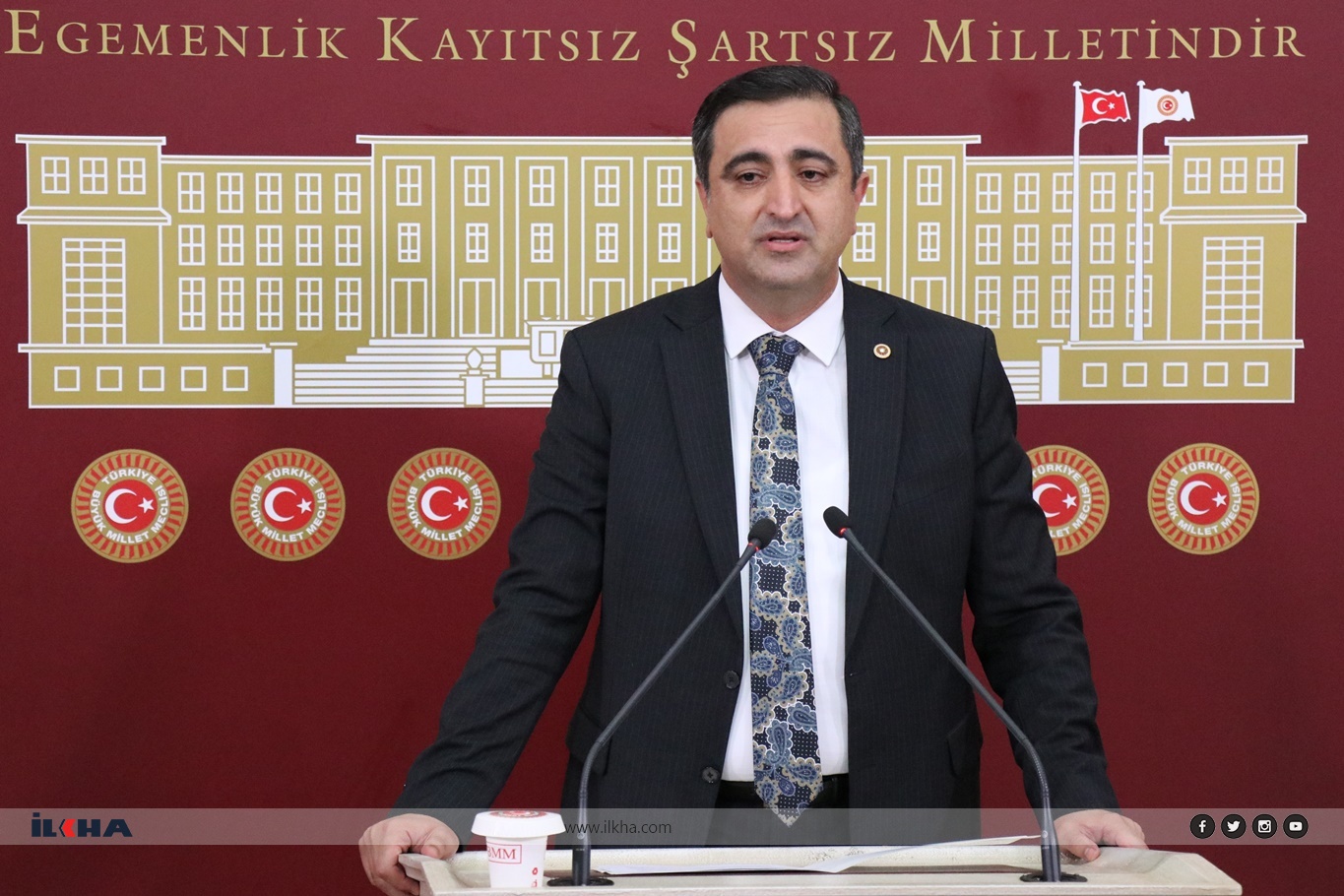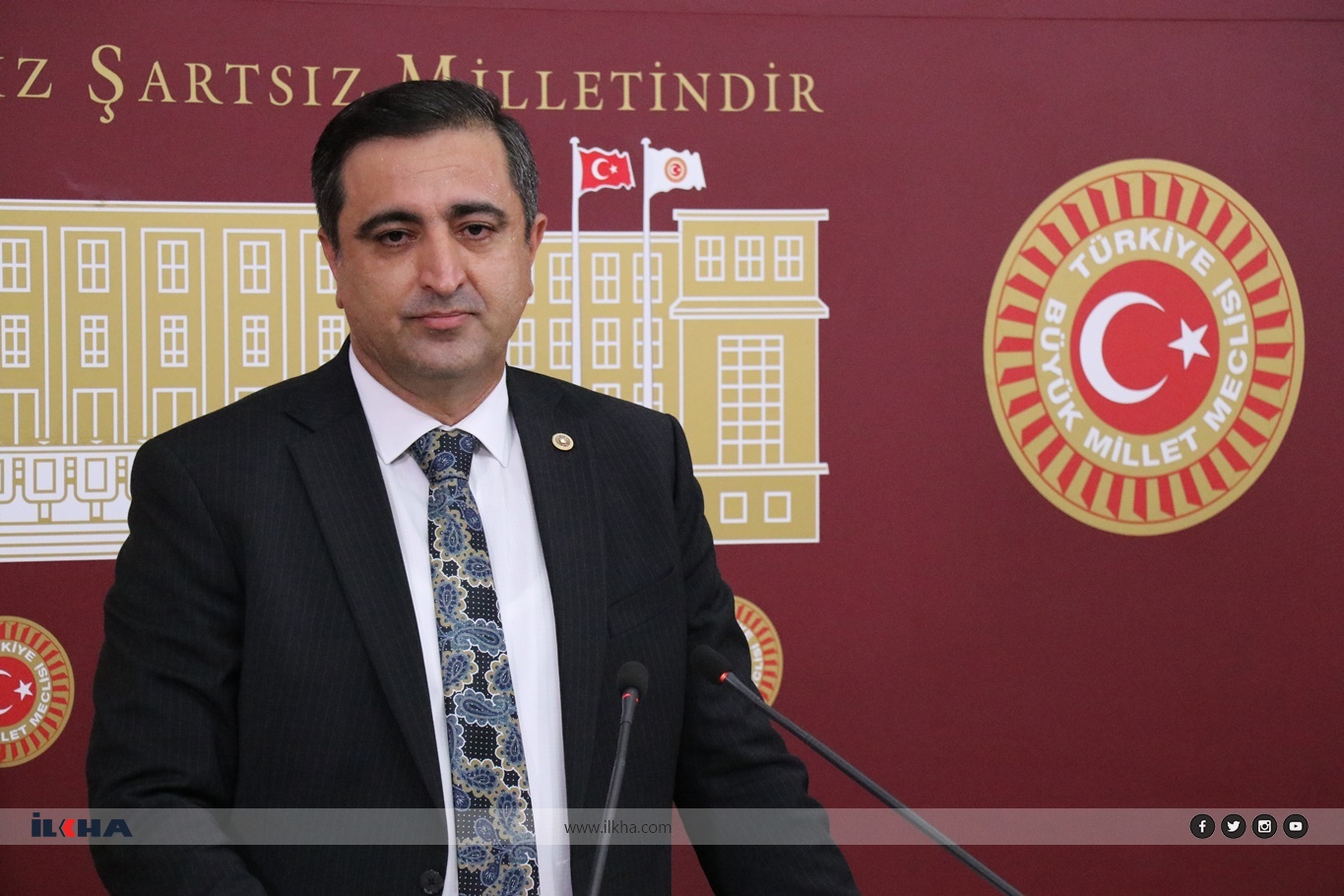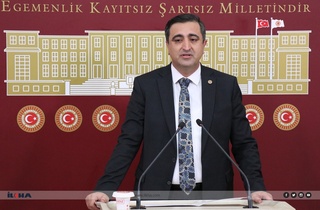His remarks brought attention to growing suspicions that trade with the "Zionist regime," as he referred to Israel, continues indirectly under the guise of Palestinian aid, despite the Turkish government's claims of halting all trade.
Ramanlı began by addressing the year-long Palestinian crisis, emphasizing the horrors of the ongoing conflict. He described the situation as a "genocide" and criticized the international community for turning a blind eye to Israel's actions. Ramanlı expressed frustration with world powers and international organizations, accusing them of double standards. "They make noise about a single endangered animal but remain silent while tens of thousands of Palestinians are being massacred," he said, lamenting the global inaction as Gaza continues to suffer.
A significant part of Ramanlı's speech centered on concerns regarding Türkiye’s trade activities. He pointed to data from the Turkish Exporters Assembly, revealing a staggering 453,000% increase in exports to Palestine in 2024 compared to the previous year. This surge, he noted, included massive increases in steel and ferrous and non-ferrous metal exports, raising questions about the actual destination of these materials. "There is no stone left on stone in Palestine," Ramanlı argued, questioning why such large quantities of building materials would be sent to a region that has been largely reduced to rubble.
The MP implied that despite official government statements about halting trade with Israel, these exports might still be benefiting Israeli interests. He asked pointedly, "Have we stopped our trade with Israel, but continue to trade with the Zionists under the Palestinian label?" Ramanlı called on the Turkish government to publicly clarify the situation and address these suspicions.
Ramanlı also took aim at Türkiye's recognition of Israel as a state and the continued operation of the Kürecik Base, a NATO radar site in Türkiye used by the U.S. and Israel. He questioned how the Turkish government could denounce Israel and its Prime Minister Benjamin Netanyahu as terrorists while maintaining diplomatic and military relations. "How can we still turn a blind eye to the Zionists being provided with intelligence from the Kürecik Base through the USA?" he asked, urging the closure of the base.
He quoted Bosnian leader Aliya İzzetbegovic, highlighting the moral responsibility of individuals and nations to choose a side in times of oppression. "We decide where we stand during these incidents," he said, reminding listeners that everyone will ultimately be held accountable for their actions, or lack thereof, during this crisis.
Ramanlı's message to the Turkish government was clear: provide transparency regarding trade relations with Israel and explain the drastic increase in exports to Palestine. He urged government officials to answer critical questions: "Where, to whom, and through whom are these iron, cement, and steel going? What do these data from the Turkish Exporters Assembly tell us?" He stressed that the Turkish public has the right to know the truth about their country’s involvement in the region’s affairs.
Ramanlı's speech highlights the growing unease within Türkiye about its foreign policy toward Israel, particularly in light of the ongoing Gaza genocide. His concerns reflect a broader frustration among segments of the Turkish public who feel that the government’s actions do not align with its stated positions. As the situation in Gaza worsens and questions about Türkiye's trade practices persist, Ramanlı's calls for transparency and accountability resonate with those who demand that Türkiye take a more principled stance in defense of Palestinian rights.
The speech serves as a reminder that, in times of crisis, not only do the actions of governments come under scrutiny, but so too does the responsibility of individuals and the choices they make in response to injustice. (ILKHA)





 Güncel
Güncel
 Dünya
Dünya
 Güncel
Güncel
 Güncel
Güncel
 Güncel
Güncel
 Dünya
Dünya
 Dünya
Dünya
 Dünya
Dünya
 Güncel
Güncel
 Güncel
Güncel





